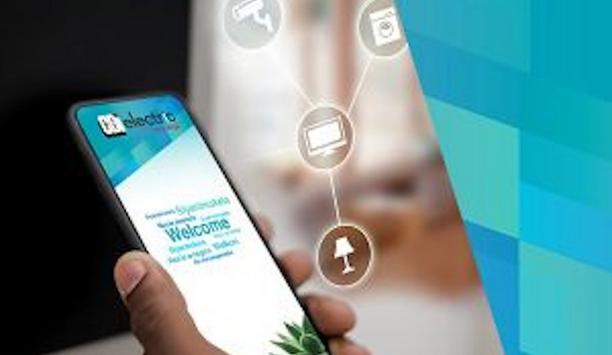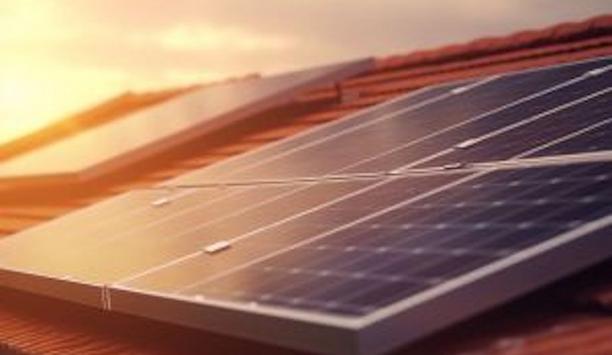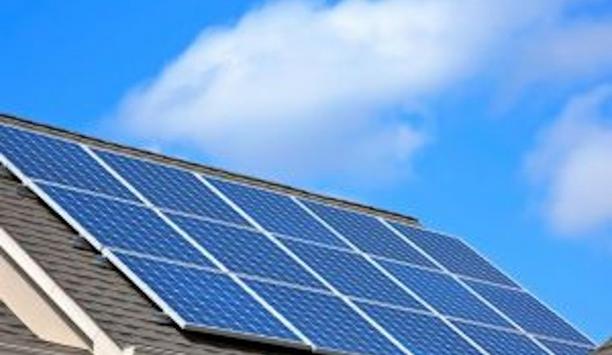CBI-electric: low voltage News
With a 12% year-on-year growth in revenue per available room (RevPAR) anticipated this summer, South Africa’s hospitality sector is preparing for a lucrative festive season. To maximize profitability, hotels, guesthouses, and other hospitality establishments are encouraged to embrace smart technologies. Energy efficiency powers hospitality This is according to Dr. Andrew Dickson, engineering executive at CBi-electric: low voltage, who says that smart technologies can redu...
Financial pressures in South Africa and across Africa have led to a surge in demand for cheaper products, creating a lucrative market for counterfeiters. This has even extended to electrical goods, which have infiltrated between 40% and 80% of markets on the continent, posing a potentially lethal risk to millions of consumers. At best, they simply might not operate, but in the worst case, these products may result in unprotected installations, with burns or electrical shocks being inflict...
South Africa has committed to net-zero emissions by 2050, but the country’s power crisis is putting achieving this in jeopardy. Consequently, the cabinet has recently approved the Just Energy Transition Implementation Plan (JET IP), which will purportedly guide South Africa’s transition to a low-carbon economy through the scaling up of renewable energy sources while also meeting the country’s energy needs and ensuring inclusive economic growth and employment. However, a balanc...
From 1 April 2024, prepaid electricity prices increased by 12.7%, raising the average electricity tariff from around R1.84 per kWh to approximately R2.07. With households averaging 350 kWh per month, South Africans will now pay in the region of R724.50 monthly–up from R644. This does not take into account municipal increases which typically come into effect from 1 July and range from 14% in eThekwini to 18% in Johannesburg. Worse still, the amount could be even higher depending not only o...
Home automation is on the rise across the globe and South Africa is swiftly following suit. It’s easy to see why, as tomorrow’s tech savvy consumers can easily control energy efficiency, ensure safety, and reduce their carbon footprint, conveniently from the palm of their hands thanks to the Internet of Things (IoT). “The world has embraced the Fourth Industrial Revolution, which has changed the way people manage their daily lives,” explains Charl Osborne, Organizational...
Renewable energy capacity in Sub-Saharan Africa is projected to nearly double by 2027, with the addition of over 40 GW from alternative power sources. More than 60% of this growth will be derived from South Africa, largely due to its Renewable Independent Power Producer Programme (REIPPP). However, as the world's attention increasingly focuses on optimizing energy consumption and minimizing CO₂ emissions, the sustainability of the components used in renewable energy projects becomes p...
With a projected annual growth rate of 13.28%, the South African IoT market is set to reach a staggering US$11.32 billion by 2028. This rise is largely credited to the commercial, mining, agriculture, and manufacturing sectors, which are already harnessing intelligent water and energy management solutions. Dr Andrew Dickson, Engineering Executive at CBI-electric: low voltage, says that while IoT is a catalyst for the country's development across various sectors, more needs to be done to pr...
Between March 2022 and June 2023, there has been a 349% increase in solar rooftop PV installations. With households and businesses now producing over 4,400 MW, electricity generated from the private sector is predicted to exceed the output from Eskom’s generation fleet by 2025. But if those who have invested in these systems aren’t careful about how they use them, they could end up back in the dark. Grid to electricity This is according to Dr Andrew Dickson, enginee...
Smoke, fire, and flames claim numerous lives in South Africa, ranking among the top causes of death. In addition, the Fire Protection Association of Southern Africa has reported that almost one-tenth of all fires stem from electrical sources. “However, many are unaware that counterfeit electrical products play a major role in fueling these incidents. To safeguard local households, it is crucial to raise awareness and illuminate the extent of this problem,” says Dr Andrew D...
The World Economic Forum says that the carbon footprint of homes represents around 20% of all global CO2 emissions, with the residential sector expected to become the most prominent electricity consumer by 2050. This renders households key actors in reaching the 1.5°C goal laid out under the Paris Agreement which was reaffirmed as part of the Sharm el-Sheikh Implementation Plan discussed at COP27. As the globe experienced its fifth-warmest September–November period in a 143-year...
Illegal connections are one of the pioneering causes of electricity-related injuries and deaths in South Africa, as reported by Eskom. Not only is there danger involved for those who connect their electricity illegally, but also for the rest of the community due to the fires and electrocutions that can be caused. Along with these devastating tolls, Dr. Andrew Dickson, Engineering Executive at CBI-electric: low voltage notes that there are also costs to the power utility and the municipalities i...
In the wake of South Africa’s longest uninterrupted period without load shedding, the rooftop solar market has experienced a slowdown, with the South African Photovoltaic Industry Association (SAPVIA) reporting a 60-80% decline in project volumes between 2023 and 2024. However, as 2025 progresses, interest in solar energy installations is expected to rebound. This is according to Dr. Andrew Dickson, Engineering Executive at CBi-electric: low voltage, who explains that several fa...
Upwards of 10 million South Africans holidayed domestically during the 2023/2024 festive season, while 620,600 ventured abroad. With recent economic boosts like lower inflation, interest rate cuts, and cheaper fuel, even more South Africans are set to spend their time away this holiday. “But before they set off, they should ensure their property is protected from unexpected power cuts which can occur due to factors such as load reduction, severe weather conditions, and increased...
The withdrawal of funding from the Just Energy Transition Partnership (JETP) is a setback for South Africa’s move to a low-carbon economy. This initiative was designed to mobilize public and private investment to help developing nations transition from fossil fuels to cleaner energy sources and accelerate the decarbonization of key sectors. However, the funding cut threatens to delay critical programs already hampered by slow financial inflows and resistance from the Department of Mineral...
By 2026, 573.7 million households worldwide will have smart home devices, 19 million of which will be South African. To help make more South African homes smarter, sooner, CBI-electric: low voltage has recently launched its IoT (internet-of-things) home automation range, called the Astute Range. New Astute Range Established in 1949 in South Africa, CBI-electric: low voltage is a designer, manufacturer and supplier of quality low voltage electrical distribution, protection, and control equipme...
Following reports of uncertified electrical products being sold on international online marketplaces, concerns are mounting over the potential risks these items pose to South African consumers. “When it comes to electrical products, the difference between safety and disaster often hinges on a simple certification label. Understanding its importance can be a matter of life and death,” warns Khensani Ndobe, International Export Sales Executive at CBI-electric: low voltage. Stringent...
South Africa's water crisis is intensifying as failing infrastructure, droughts, and shrinking reservoir levels strain municipalities. Gauteng is already facing level one restrictions, while eThekwini’s water curtailments will continue until September. With demand set to outstrip supply by 17% in five years, urgent solutions are needed. Dr. Andrew Dickson, Engineering Executive at CBi-electric: low voltage, urges national and local governments to adopt smart...
Water authorities in Johannesburg have warned that the city's water and sanitation grid is on the verge of collapse, raising questions about the security of its water supply. While Mayor Kabelo Gwamanda recently unveiled a comprehensive water security strategy, Dr. Andrew Dickson, Engineering Executive at CBI-electric: low voltage, believes that a crucial aspect is missing - saving electricity. Electricity disruptions "Electricity disruptions are hampering the city's water supply,"...
As of 1 March 2024, Eskom has taken over control of load shedding in the City of Ekurhuleni. This, after the city reportedly failed to execute power outages when required. However, the metro has negotiated with the power utility for load curtailment to be implemented instead, which will see businesses reportedly being responsible for reducing their electricity consumption by 30%. Reduced output and lower profitability Businesses are keenly aware that when the power goes out, production stops,...
South Africa's rapid rooftop solar adoption, with households and businesses installing over 5,400 MW in just a year, has eased pressure on the national grid - leading to the longest load shedding break since January 2022. However, this surge has raised safety concerns, with firefighters reporting that one in six fires they respond to daily involves solar installations. Rooftop solar installations Dr. Andrew Dickson, Engineering Executive at CBI-electric: low voltage, explains the culprits beh...



















